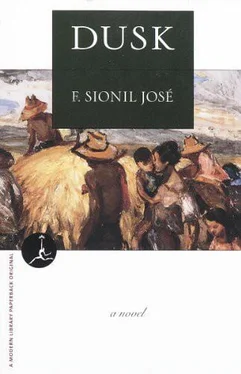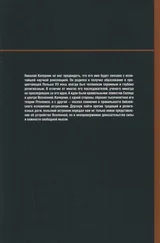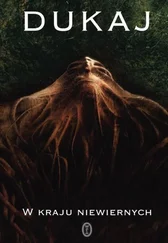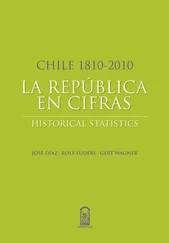“Why do you persevere, Apo, if everything is lost?”
The question was lightning, perhaps, or thunder. Don Jacinto, who was listening to everything, head bowed, jerked up. The Cripple, immobile in his chair, leaned forward and raised his hands in an angry gesture, but slowly brought them down. In the morning light, his face had seemed solemn and at peace but suddenly the fire in his eyes banished all this. He breathed deeply, then spoke: “You say then that we must leave the leader to his fate? He has committed mistakes … but until he is captured or killed, he is not just a leader, he is a symbol of our struggle, of our will. Yes, we have already lost the war. This is true. Even an unlettered man can see this. This land belongs to us, Eustaquio, and someday, we will win. We lose now, but we will fight again, each one of us, until they tire, until they are bloodied and wearied, until we are free and justice triumphs.”
Istak had not ridden in years, but Don Jacinto assured him that Kimat, his beautiful chico-colored horse, was not a difficult animal. He should not forget to give the horse a piece of sugar cake every afternoon, together with the grass. Don Jacinto gave him fifty pesos — the largest sum Istak had ever had. The letter in a leather pouch was sewn into the jute mat that was to be his saddle. Farmers could not afford the leather saddle Kimat was used to. At the gate, Don Jacinto embraced him, reminding him what the Cripple had said: “Eustaquio, you are no longer Ilokano, you are Filipino.”
How would he tell Dalin what he was to do, where he was going? There were just the three of them who knew. Remembering the stories of torture the Americans had inflicted upon his people, he wondered about his capacity to be silent if his flesh was torn, or if his boys or his wife would be forfeit for what was entrusted to him. He had kept a few secrets to himself. Not even to the old priest from whom he had learned so much or to Dalin had he revealed how he had been aroused by Capitán Berong’s daughter. That was, of course, a trifling matter, important only to himself. What he knew involved not just the two friends who shared the secret with him, but, perhaps, a thousand others whose lives depended on how well he could keep the secret, then lead the president to the valley.
Don Jacinto held the reins for a while and patted his favorite horse on the head. Before he let go, he whispered to Istak: “Do not worry about your family.”
A chill wave collapsed on him. He might never return; how would he tell Dalin this? She had understood why he had to work for the Cripple for days. And how exhilarating it had been — to have the mind soar again, to speak again with someone who could scale those ethereal heights. He had forgotten the feeling, although on occasion something akin to it would lift him from his mundane self, when he brought back color to faces already marked by Death, when a bony arm still and numb responded to his touch. Kyrie Eleison! Christe Eleison! Would Dalin understand? For all her intelligence, she had never really thought much beyond what was circumscribed by Cabugawan. Nights he would lie awake, his arm laid across her breast, and they would talk not about what the Cripple had said but about the ripening corn, the sick, and why he had to see all who came to him as if a compulsion possessed him. How would he explain to her the sickness which he had survived, which ordained him to do what he was doing? And now, no dream hastened him, nothing but a cripple’s words — yet they were all that mattered.
Even without Istak’s telling her, Dalin knew how much he had enjoyed writing again. The time would come when the words he shaped would spring to life, and these same words would claim him — not as words but as a promise, as Vigan in the past had been, and perhaps, someday, Manila — all the evocations that the Cripple had made. Manila, where people could appreciate better what he did with words and prayers; Manila, where there were more men like the Cripple. But it was not to that Queen City he was headed. He was going back to the north, to the beginning.
Later: How would he tell his sons? Antonio was not even ten and though the boy already knew how to plow straight furrows and control the plowshare so that it did not sink too deep, still he was just a boy. And Pedro, who could help in the transplanting of rice, in the pasturing of the carabaos , who was as proficient as his older brother at reading and writing — what would happen to them? They would not starve as long as Dalin was alive, that was true. He regretted that he had spent so little time with them.
Kimat cantered through the narrow lane bordered with flowering madre de cacao trees. The jute-mat saddle held the letter sewn within, the silver pesos were in his pocket. Slung across the horse’s back was the bag with cakes of cane sugar. He would add to his pack rice, salt, and dried beef. It would suffice. With money, he could always buy provisions on the way.
Antonio’s dog, Kebaan, barked in greeting when he approached; the barking frightened the horse, which reared, but only for an instant. Kimat became still as soon as Istak smoothed his mane and said a few soothing words. All the boys in the neighborhood who had heard the neighing rushed out of their homes to look at the beautiful beast, bigger than the ponies which pulled the calesas . Though Don Jacinto had been to Cabugawan a few times, Kimat always drew attention from the children. Their own uncle astride the steed impressed upon them all of their uncle’s importance, that something unknown, exciting, was happening.
Dalin came down the stairs. Through the open door, the kitchen fire reached out to them with its warm glow. Istak, tying Kimat to a gatepost, could discern at once the anxiety in her face as she approached. He held her by the waist and drew her up to the house, leaving the boys in the yard to admire the horse.
“That is Don Jacinto’s mount,” she said. “Where are you going?”
He did not reply; instead, he kissed her softly on the brow. It was moist with perspiration. “Do not be angry, Old Woman,” he said affectionately. “Just do not forget that you are precious to me and that I will always treasure you in my mind and heart.”
The concern in her face deepened. He told her everything without any embellishment, and when he was through, she embraced him and cried, “I may not see you again. I have waited for this day, I knew it would come.”
She had always been brave. Like the house posts uprooted from the Ilokos, she was also sturdy. She would be able to withstand the long wait, the uncertainty, he assured himself as he held her, feeling the quiver in her body, the trickle of her tears against his cheek. “I will return, just wait,” he whispered.
He left her so she could finish her cooking, the smell of the vegetable stew clinging to his nostrils. This was the pleasure of home he would certainly miss, and briefly, he wondered where he would have his breakfast; the road to Bayambang was not within his compass and he did not know of a single eating place along the way.
At his instruction, his older son had gone quickly to the neighbors, to Bit-tik first. Now the men, the women, and children were gathered in the yard, sitting on their haunches, on the long wooden mortar where the sheaves of rice were pounded.
To them, he entrusted his family. He was leaving, he said, on a journey to the north. They knew of the Cripple’s presence in Rosales, this great man whose wisdom they could not fathom. He was tempted to tell them he would go across the Cordilleras and that he would probably try and see Po-on again. Po-on where they came from and where it all began. Po-on which clung to them tenaciously as memory.
In the afterglow, he recognized all the faces raised to him. The soft light hid the lines of care and hard work just as it hid from them, too, the glaze of tears in his eyes.
Читать дальше












